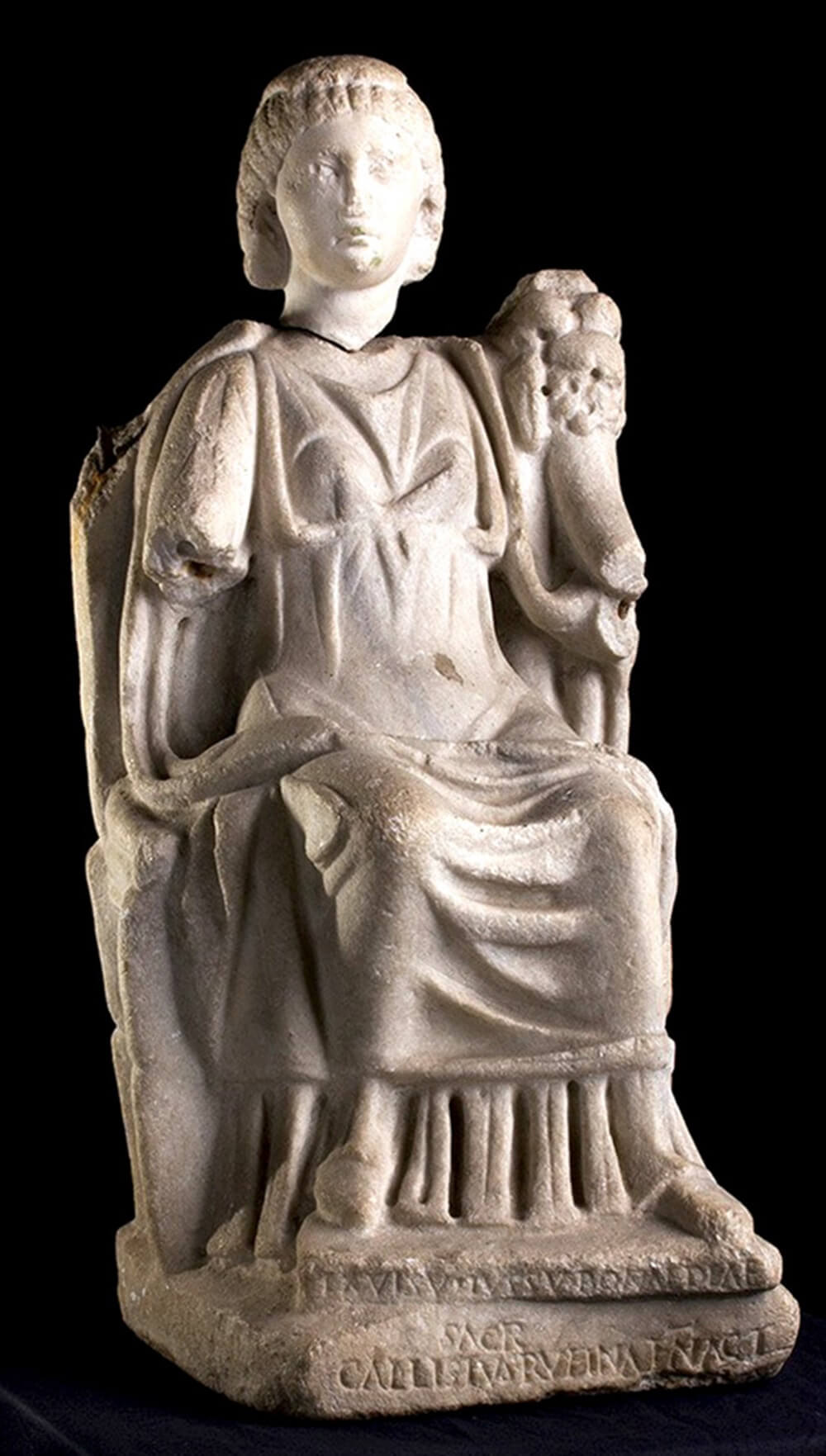Clodius Scandal
Toward the end of Caesar's term as urban praetor, Pompey returned from the east and dispelled any fears about his intentions. He disbanded his legions and returned to Rome to celebrate his most glorious triumph yet. Pompey, of course, wanted land bills issued to take care of his retired veterans, but he was opposed by the optimates.
Little did Cato and his supporters realize that their opposition to Pompey pushed him closer to Caesar. He certainly did his part to patch up any lasting rivalry between Crassus and Pompey, and was building a foundation for his own political future. Before that relationship could blossom however, the Caesar household was rocked with one of the greatest social scandals in the history of Rome.
The annual celebration of the Bona Dea (Goddess of fertility, healing, virginity and women) was held at Caesar's home. As the Pontifex Maximus, his wife was responsible for arranging this sacred and important celebration. It was a women-only event in which the vestal virgins played an important role. Publius Clodius Pulcher, a patrician politician with sometimes wild behavior, attended the event dressed as a woman, apparantly in order to associate with Caesar's wife, Pompeia, or one of the Vestal Virgins.
Clodius seems to have been spotted by Caesar's mother, Aurelia, and he fled the scene. He was later brought to trial, likely on charges of bribery, by Cicero. Caesar's enemies were certainly happily surprised at the potential turn of the tables episode, especially considering Caesar's association with several Senators' wives.
Caesar, however, maintained perfect calm, and while proclaiming Pompeia's innocence, he simply divorced her, with the famous quote "Because I maintain that the members of my family should be free from suspicion, as well as from accusation," as his reason.
Later at the trial of Clodius, Caesar gave no ammunition to the prosecution, and Clodius got off by bribing the jury. Later, Clodius adopted into a plebeian family in order to secure the position of Tribune of the Plebs. Despite the scandal, Clodius would later become an important ally of Caesar, until his erratic behavior would eventually end it.
Crassus Comes to the Rescue Financially
The length of the scandal delayed elections and provincial appointments for the next year, and Caesar was in serious jeapardy of prosecution for his debts. Crassus came to the rescue again, paying off a quarter of his 20 million denarii balance.
Eventually, by 61 BC, Caesar was finally assigned to serve as the Proconsular governor of Spain, the province he served in as a quaestor. With this appointment, his creditors backed off, allowing that this position could be quite profitable. Leaving Rome even before he was officially to take over, Caesar was not taking any chances.
Caesar in Spain
Caesar and his staff rode hard, reaching the Rhone in only 8 days, showing a glimpse into the future ability of Caesar to move his armies at remarkable speeds. On the way, several members of his entourage commented on the barbaric and wretched (in their opinion) life in the local villages. Caesar, again showing his ambition replied, "For my part, I'd rather be the first man among these fellows than the second man in Rome." During his time as the governor of Spain, Caesar strengthened his relationship with these Gallic peoples, which would be an important factor in his later plans.
Arriving in Spain, Caesar developed a remarkable reputation as a military commander. Between 61 and 60 BC, he won considerable victories over the local Spanish Calaici and Lusitani tribes. He advanced as far as the Atlantic Ocean, and subdued tribes in the northwest part of the country that had never before bowed to the Romans.
In his conquests, he secured enough spoils of war to pay off all of his debts, while giving his men a considerable share and leaving some for the Roman treasury. The haul must have been enormous indeed. During one of his victories, his men hailed him as "Imperator" in the field, which was a vital consideration in being eligible for a triumph back in Rome.
Caesar was now faced with a terrible dilemma, though. He wanted to run for Consul for 59 BC and would have to be present within the city of Rome to do so, but he also wanted to receive the honor of a triumph. The optimates surely would use this against him, forcing him to wait outside the city, as was the custom, until they confirmed his triumph. The delay would force Caesar to miss his chance to run for Consul, and he made a fateful decision. In the summer of 60 BC, Caesar entered Rome to run for the highest political office in the Roman Republic.




